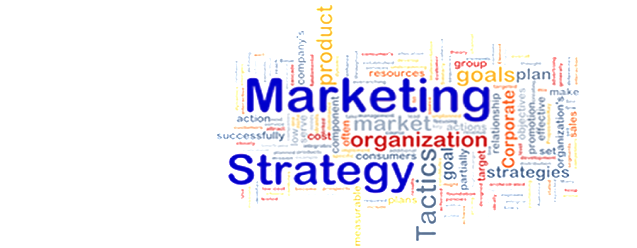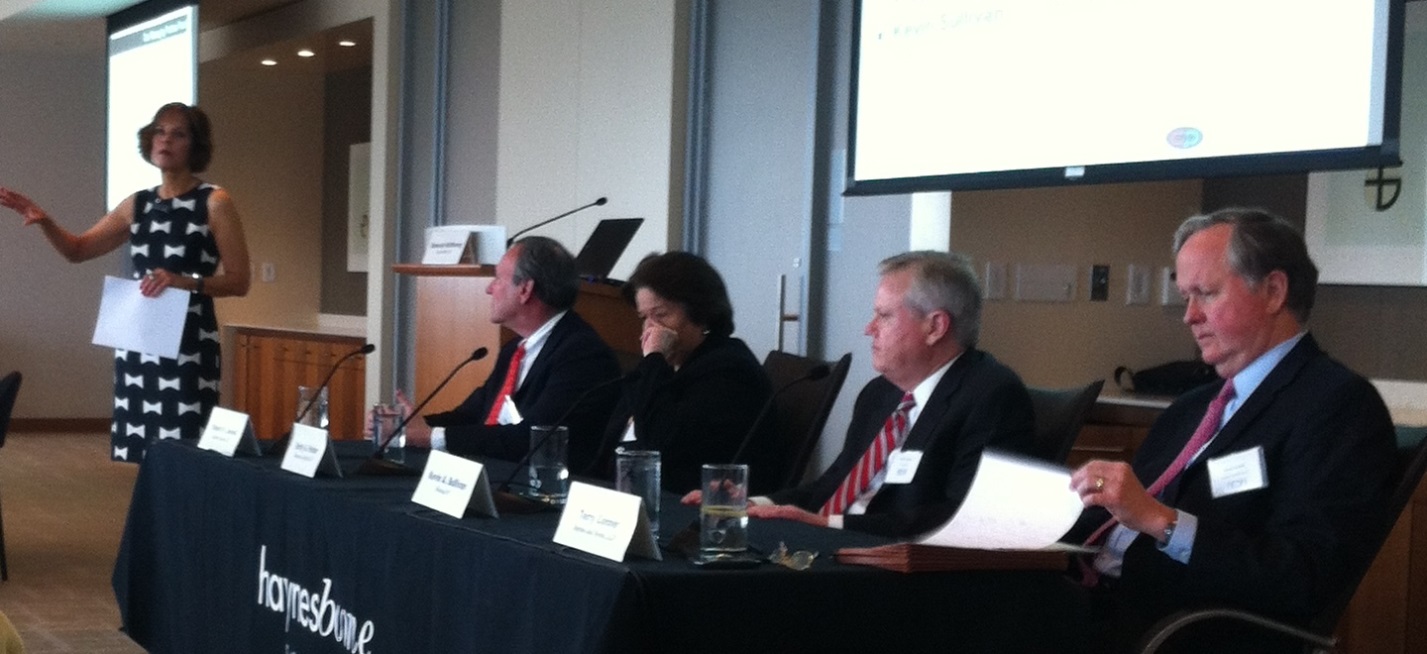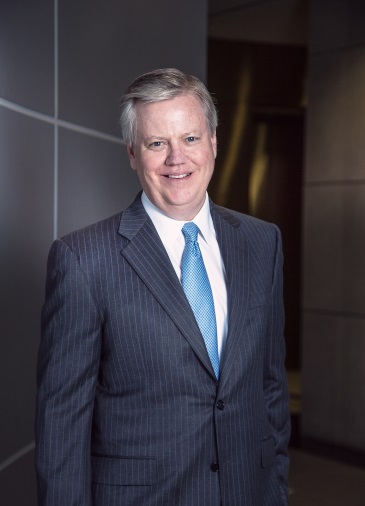We can help you find the right path to increased revenue!
Legal Industry News – Managing Partners Share Forecasts and Insights – Part 2 of 2
Tags: attorneys, business development, legal industry news, Legal industry trends, legal marketing, Lisa Whitley Coleman, managing partner, managing partner forum, managing partner panel, marketing consultant
Categories: Legal Marketing
This is part 2 of a two-part discussion regarding legal industry news, trends, forecast and insights by law firm managing partners. Please see the prior post for the first part.
Legal Industry News
Innovation
McMurray’s next question explored areas within law firms with the greatest need for innovation and re-engineering within law firms.
Marketers like to see themselves as change agents, Jewell said. “Together, we need to explore new structures and answer the question – Are there faster, better, smarter methods for delivering services?”
Parker agreed that answers are needed. “I’m not sure that the way we are compensated encourages efficiency,” she said. “In fact, the hourly billing rate method discourages efficiencies. There is a need to set up systems that reward efficiency.”
Jewell says he sees the communication trends of younger professionals as being more instantaneous and efficient, but sees a flaw in the continued preference of the exclusive use of electronic contact. Having analyzed Andrews Kurth’s pitches and proposals by practice group for 2012, the firm’s business development professionals found that meeting face to face resulted in a better than 50% chance of winning new business.
Conner sees a need for better project management, project management training and improved budgeting.
We Need You Guys
On the topic of the role of legal marketers and expected changes in the next five to 10 years, all the panelists agreed that the services provided by legal marketers play an essential role in the strategic development of law firms. That is not expected to change.
Sullivan confirmed that attorneys are very slow to change, a poorly-kept secret any marketer who has suggested something new can easily affirm. He joked that the standard response to innovation is to ask who else is doing that, which drew a big laugh from attendees.
‘We need you guys,” Sullivan said. “Marketers are at the other end of the spectrum as far as change. Attorneys in their 40s are much more comfortable with the role that marketing and business development team members can play – what they can add.”
Communication within the marketing department is critically important, Jewell said. “Thinking creatively is key,” he said. Marketers need to use modular materials that can be customized within standards, and create high service standards that are communicated across the board, he said.
Parker sees an increasing reliance on chief marketing officers in law firms.
What are the highest value marketing and business development initiatives to the law firm? What can marketing professionals do to add value and increase their indispensability in the future? – McMurray asked for the last question of the day.
The emphasis is on sophistication, performance and results, Conner said. “Marketing professionals have to be more strategic.” Marketing has a good seat at the table now and that’s important, he said. “Understanding pricing and profitability is very important. We like data, especially competitive intelligence. Marketers need to have a really deep understanding of what the law firms do, what their clients need and want.”
Conner would like to see marketing completely focusing on core groups of clients in order to achieve a deep understanding of their needs. “I see having more business develop managers embedded in our practices,” he said.
“Helping lateral hires to integrate would be a great initiative, Sullivan said. “They bring new clients and new opportunities. We need to ramp them up quickly,” he concluded.
Jewell would like to see marketing better assist with communicating what their attorneys do and how they do it. He also mentioned that attorneys have personal relationships that are not being captured and explored, which creates opportunities for marketers.
“The marketing team can provide lawyers with good information about the legal market and legal services pricing and budgeting so lawyers can make compelling, relevant presentations to potential clients,” Parker said. Marketers can help shape these important conversations – showing firm experience, determining the best pricing arrangement and the timeframe for getting the work done, she said.
One thing was clear from this discussion: branding is no longer top of mind. These managing partners value strategy, technology, research, analytical skills and competitive intelligence. This isn’t to say that branding isn’t important today; it simply didn’t come up in the discussion.
Audience members questioned panelists about the use of sales professionals on client development teams. The general consensus was that it isn’t being ruled out, but is not currently under consideration.
Another question raised the issue of a moving to flat-rate billing. Panelists agree that many clients support this change and also agree that there are no clear answers.
“Clients know what’s reasonable,” Sullivan said. “We need pricing incentives that line up with our clients’ interests. But it’s tricky.”
Profiles
Terry is in his sixth year as Managing Partner at Haynes and Boone and he started his career at his firm in 1975. He was the only corporate associate for Haynes and Boone and he says his office was right in between Mike Boone and Richard Haynes so they could keep an eye on him.
Q. At what point in your career did you set your sights on leading a law firm? I got involved in practice management 25 years ago and in firm leadership 15 years ago. I didn’t set my sights on the MP job, but understood that’s where I was headed a few years before becoming the MP.
Terry describes his leadership style, with regard to decision-making, as fact-based and as analytical as possible. He seeks input from all relevant sources – and he has the right folks at the table. Internally, his emphasis is on communication, consensus-building and letting personnel know that firm leadership’s job is to help provide tools for their success.
Q. What is the best business development advice you received as a young lawyer? Become a true expert in an area (or two) that you really know, like and can promote internally and externally.
Q. Over the next few years, what is your greatest concern about the practice of law? Running the practice of law as a business will do fine financially. The concern is maintaining the dignity and integrity of law as a noble profession – a profession that has the highest ethics, client-first mentality and interested in improving our profession and society. And related to that, heightened business pressures that affect law firm culture.
Bob is completing his sixth year as the MP of Andrews Kurth. He started his career at the firm in 1978.
Q. At what point in your career did you set your sights on leading a law firm? I’m not sure I ever set my sights on leading a law firm Your credibility with your partners as a potential leader is somewhat dependent on first having demonstrated success with your clients.
Bob’s leadership style is all about listening, but being decisive. He’s open to constructive criticism and believes that empathy salves many wounds.
Q. What is the best business development advice you received as a young lawyer? Whatever you’re involved in, do the very best you can. Of course this means client matters, but also includes involvement with non-profits and charities – even coaching little league.
Q. Over the next few years, what is you greatest concern about the practice of law? Bob’s greatest concern about the practice of law is that he wants it to continue to be an attractive profession for talented younger generations.
 Emily Parker
Emily Parker
Emily became managing partner on Feb. 15, 2012 and began her career at Thompson & Knight.
Q. At what point in your career did you set your sights on leading a law firm? “My sights were always set on being an outstanding practicing lawyer. I first seriously considered becoming MP shortly after Jeff Zlotky (the then MP) indicated that he wanted to return to the fulltime practice of law.
She describes her leadership style as “a servant leader.” She likes to lead by example, being transparent and accessible.
Q. What is the best business development advice you received as a young lawyer? Never lose touch with anyone you know either personally or professionally.
Q. Over the next few years, what is your greatest concern about the practice of law? “The projected flat demand for legal services over the next few years creates pressures on lawyers and firms regarding how to develop and promote less experienced lawyers. At the same time, clients want to reduce the cost of legal services. Giving the next generations of lawyers and law firm leaders the opportunities we received is both an obligation and a challenge in today’s ‘what have you done for me lately’ legal world.”
Kevin Sullivan
Kevin has been Chairman and CEO of Winstead for two and a half years, where he started his career.
Q. At what point in your career did you set your sights on leading a law firm? Exactly 2 ½ years ago.
Kevin’s leadership style is supportive.
Q. What is the best business development advice you received as a young lawyer? First become good at what you do. Then you will have a better product to sell.
Q. Over the next few years, what is your greatest concern about the practice of law? My concern is that the quest for ever-increasing profitability will make it less fun.
Lisa Whitley Coleman serves on the LMATX Board and is the 2013 Leader of the LMA Dallas City Group. She is the CEO of CM2 Marketing where she provides outsourced creative and customized marketing and business development solutions for her law firm clients. She is an award winning marketer and writer, and previously worked as a journalist at Texas Lawyer and the Dallas Business Journal. She can be reached at [email protected].





